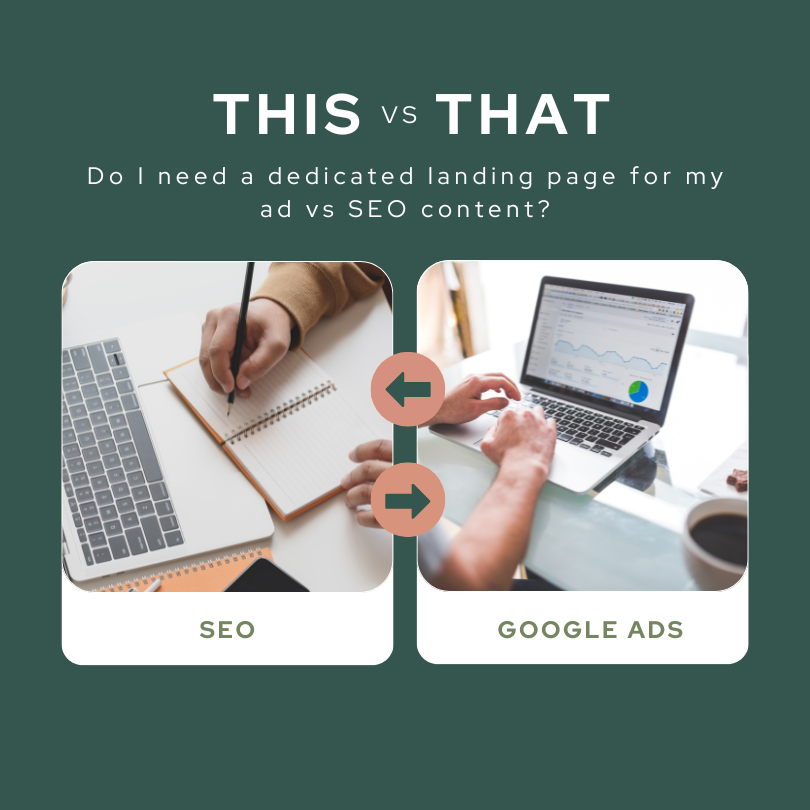Customer Question: Do I need a dedicated landing page for my ads vs SEO campaigns?
Customer question: Do I need a dedicated landing page for my ads vs SEO campaigns? This is a great question and one that we as marketers definitely have a few opinions on.
“The short answer: Yes, we recommend it! If you don’t have the resources to design a completely new page, that’s ok. You can duplicate the page and make small changes and then you’ll be able to see the SEO value separately from your Ad traffic data. If you’ve got a big budget you can create a page specifically for your ad traffic to maximize conversions.”
Many companies turn to paid advertising to achieve their goals and key performance indicators (KPIs) because they don’t want SEO as their only lead generator. However, creating custom, campaign-specific landing pages can be resource-intensive, and not every team has the necessary tools, expertise, or personnel to build the content. To determine whether you need a custom page or can safely send paid traffic to an organic page and still achieve your KPIs, follow this three-step, data-driven evaluation.
It is crucial to understand why having both paid and organic pages is essential and the drawbacks of sending paid traffic to organic pages without analyzing them first. Search intentions often differ between paid and organic users, and each group will have different content needs.
The biggest reason that we see is that mixing paid and organic traffic on the same page makes it difficult to separate and track audience-specific user behavior, content performance, and conversion rationale/ rates. Without data clarity, you can quickly get a misleading picture of content performance and miss crucial KPIs.
To produce higher quality conversions, it is best to direct paid traffic to a custom-built, campaign-specific landing page that accommodates user intentions and elicits specific user behaviors.
One of the most challenging aspects of traffic of any form is determining where a potential buyer is in their journey. Are they just starting out, or have they already engaged with your content before reaching the product page? Knowing this can help you identify the most effective content for conversions and ensure that you're reaching the right people at the right time. Having dedicated landing pages helps you tailor the content on the page to the type of traffic coming to the website.
For example, if your organic conversions depend heavily on return visits or extensive browsing, sending paid traffic directly to the page may not improve your results. Paid users may feel overwhelmed or unsatisfied without the context of previous interactions, causing them to bounce from the page.
While creating a dedicated paid landing page is likely to yield better and more consistent results and a clearer analytic data, there is no harm in trying out your organic page first if you believe it's good enough. You can run a small test with, say, 25% of your advertising budget for this project, and assess whether the page's performance improves. If it doesn't, you will have a definitive answer, and you can then prepare with the necessary resources to build a stellar paid landing page.


